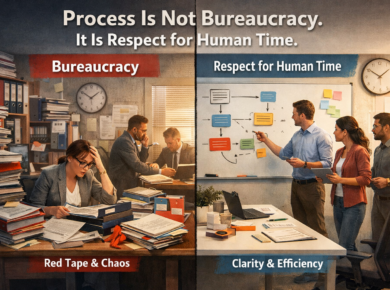Why Teamwork Is Important: The Power of Working Together
“Alone we can do so little; together we can do so much.” – Helen Keller
Teamwork is more than a buzzword. It’s the invisible force that builds companies, wins championships, and even lands humans on the moon. When people work together with trust and shared goals, they achieve what no individual can alone.
1. The Power of Working Together
In today’s world, collaboration defines success. A single person may start an idea, but it takes a team to make it grow. Great teams share responsibility, learn from each other, and multiply outcomes through unity.
Look at NASA’s Apollo 11 mission. It took over 400,000 people — engineers, scientists, and pilots — to make Neil Armstrong’s moonwalk possible. That is the power of teamwork at its finest.
2. What Teamwork Really Means
Teamwork is not just about dividing work. It’s about combining strengths. A true team respects individual skills while working toward one vision.
When everyone contributes their best, the outcome becomes greater than the sum of its parts. As discussed in Success Without Burnout, success is sustainable only when shared responsibility keeps stress low and productivity high.
3. The Science Behind Team Collaboration
Research from Harvard Business Review shows that teams with strong social bonds outperform individuals by over 25%. The human brain releases dopamine when we collaborate — rewarding connection and shared purpose.
That’s why even top-performing leaders prefer working with teams that inspire mutual growth. Science supports what our instincts already know — teamwork feels good and delivers results.
4. Why Teamwork Matters in the Workplace
In business, teamwork drives innovation, efficiency, and culture. When people unite toward a common mission, obstacles turn into opportunities. Companies like Toyota built global success on team-based systems such as “Kaizen,” where every employee contributes ideas for improvement.
Similarly, Apple became a symbol of creative collaboration when Steve Jobs encouraged open discussion between engineers and designers. Great products are born when diverse minds come together with one purpose.
5. Teamwork Builds Trust and Connection
Trust is the foundation of teamwork. Without it, even the best plans fail. Teams that trust each other communicate openly and take smart risks.
In the 1983 Indian Cricket Team’s World Cup victory, trust played a vital role. Under Kapil Dev’s leadership, every player believed in the collective dream. That faith turned an underdog team into world champions.
6. Teamwork Sparks Innovation and Ideas
Innovation flourishes in groups that encourage creative discussion. A single viewpoint limits growth; many viewpoints unlock it. The Wright Brothers succeeded not because of resources but because they worked together, learning from every failure until flight became reality.
Similarly, at How to Behave Like the Top 1%, teamwork is seen as a mindset of collaboration and open learning — not competition.
7. Teamwork Improves Productivity and Performance
When teams collaborate, they divide effort but multiply results. Each person focuses on their strengths, covering others’ weaknesses. This synergy leads to faster problem-solving and higher productivity.
In manufacturing, companies like GE and Toyota show how team-based systems reduce waste and increase output. It’s not just about speed — it’s about smart coordination.
8. Teamwork Creates a Supportive Culture
Working in isolation can lead to stress and burnout. But when people work in teams, they feel valued and supported. A strong team culture encourages empathy, respect, and accountability.
This is why modern workplaces promote psychological safety — the idea that team members should feel free to speak without fear. Studies by McKinsey show that such cultures lead to 40% higher employee engagement.
9. Lessons from Great Teams in History
History celebrates teams that changed the world. The Manhattan Project scientists worked together under immense pressure to end World War II. The NASA Apollo Team overcame endless failures before success. And the Chicago Bulls of the 1990s, led by Michael Jordan and Phil Jackson, redefined what synergy means in sports.
In all these cases, individual excellence mattered — but teamwork made history.
10. How to Build Effective Teamwork
Great teams don’t happen by chance. They are built with intention. Here’s how:
- Define clear goals – Everyone should know the mission.
- Communicate openly – Silence kills collaboration.
- Celebrate small wins – Recognition builds momentum.
- Encourage diversity – Different views fuel innovation.
- Build trust through consistency – Reliability makes teams strong.
As discussed in Top Ten Sources of Motivation for Humans, motivation grows when people feel connected to a common purpose.
11. Conclusion – Together We Achieve More
Teamwork is not optional; it’s essential. From building nations to growing startups, the most powerful achievements come from shared vision and effort. Whether in sports, science, or business, teamwork transforms potential into progress.
“If you want to go fast, go alone. If you want to go far, go together.” – African Proverb
Final Thought
Teamwork is the bridge between dreams and reality. It’s the force that turns good ideas into great outcomes. Work together, support each other, and success will follow naturally.








